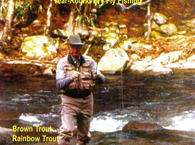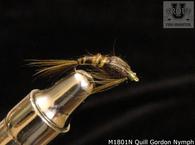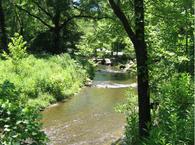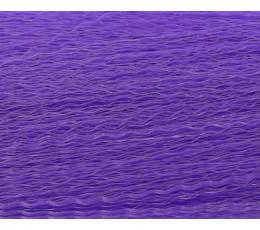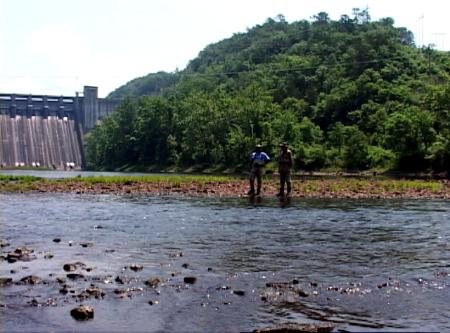
Actually, the real name of the river is the North Fork of the White River, but it is far better known as the name given to it by the locals which is the Norfork River. The Norfork River is a river of cold water released from the Norfork Dam. It flows only 4.8 miles before joining the White River at the town of Norfork. The Norfork River has produced a 38 pound, 9 ounce brown in 1988. If that is any indication of the trout fishing, then it is good and indeed it is very good. The reason that the Norfork is good is that it is a limestone spring fed river with a good pH. The Norfork waters support huge populations of crustaceans, sowbugs, and scuds. Also, the water temperature of in the Norfork River tailwater stays between forty-eight and fifty-eight degrees year-round. In addition, the nutrient rich waters from the Norfork National Fish Hatchery flow into Dry Creek and then into the Norfork, further enriching the river.
The Norfork River is best waded when the water is low. When power is being generated, it is best to float the river in a drift boat. The water will be high and there will be only a few places where it will be possible to fish it from the banks. One place for bank fishing will be at Quarry Park just below the Norfork Dam. It should be noted that wading can be very dangerous when power is being generated so caution is a must. When the water is low, however, it is the perfect time to stalk the huge trout of the Norfork.
During the hot summer, trout migrate upriver from the White River into the cool water of the Norfork River. During the brown trout spawning season, many large brown trout move upstream from the White River into the Norfork River to spawn.
There's also special regulation fishing in Dry Creek Run. The discharge of the North Fork National Fish Hatchery provides the water for this small stream. It enters the Norfork River just below the Norfork Dam in Quarry Park. It's all catch and release with special regulations on gear. This is open only to children under the age of 16 and the disabled.
Fly Fishing the Norfork River:
The sight fishing method is one of the best and the most productive means of fishing when the water is low. Start with a scud or sowbug imitation, add some weight a few inches above the fly and search for trout. (Polarized glasses are a must.) After your target trout is sighted, establish yourself in the best possible location, using care to not spook the trout, and cast well upstream of the trout. The weight must be adjusted so that the fly does not drift over the trout. The scud and sowbugs fished blind will also be effective in the runs and riffles.
Large streamers that imitate sculpin and baitfish work great at times and they are a definite staple for your flybox. Trout can be taken in high water from a drift boat using these large streamers. They are also very effective in catching the migrating brown trout that come up the river to spawn. For the most part, nymphs and larvae will be far more effective than dry flies. Also, midges will be good through the entire year. Even the largest trout will fall prey to a midge fished on the bottom.
Seasons:
You can catch trout on the Norfork River year-round. When the brown are spawning it will be a great time to fish, however fishing will be good for the entire year due to the constant water temperature ranging from 48-58 degrees F.
Spring:
Blue-winged Olives represent the largest population of mayflies. They hatch during the months of January and February and then again in September and October. This hatch brings on some good dry fly fishing. Other than that, Sulphurs are about the only mayfly that hatches in quantities large enough to be very important. They normally hatch during the months of April and May. Although the nymphs are most effective, some trout can be taken on dry flies that imitate mayflies as well as midges. Hook sizes can be as small as #20 to #24.
Summer:
Brown trout are migrating to find cooler water and this presents a great opportunity. Crawdads, stoneflies and sculpin will be good imitations. From about the middle of June throughout the summer until the end of September, you can catch trout on imitations of grasshoppers, ants and beetles. Dropper fly rigs, using large foam hoppers on the surface and nymphs dropped below them, are popular on this river.
Fall:
Fall is the time for fly fishing the Norfork River if you want to hook one of the river's large brown trout.
Winter:
Midge fishing can be good during the winter. This is an excellent time for sculpin and minnow imitations for those large browns.
Access is easy at Quarry Park located just below the Norfork Dam. It has public acces for bank fishing as well as wading. It also has a boat launching ramp. There are other access points as well as several private resorts.
Fly Fishing for Trout in Tailwaters Not only does Mother Nature control the habitat of trout, but man does as well.
Stoneflies - Imitating Aquatic Insects Stoneflies are a very important part of the aquatic insect populations.
Tying Perfect Mayfly Nymphs Prefer to tye your own nymphs, then this is a must DVD.
Blue-winged Olives represent the largest population of mayflies. They hatch during the months of January and February and then again in September and October. This hatch brings on some good dry fly fishing. Sulphurs are about the only other mayfly that hatches in quantities large enough to be very important. They normally hatch during the months of April and May. Both Cinnamon and Spotted Sedges hatch from March through May. Craneflies are present on the river from about March through October. We feel that the Perfect Fly line of flies are the very best imitations of real aquatic insects.


